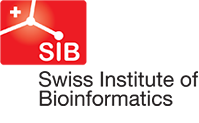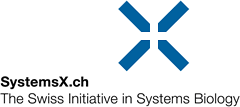Post-doc position in computational genomics/gene regulatory networks
Post-doc position in computational genomics/gene regulatory networks
Biozentrum, University of Basel, Switzerland
A post-doctoral position is available in the group of Prof. Erik van Nimwegen at the Biozentrum of the University of Basel and Swiss Institute of Bioinformatics. We are looking for highly motivated individuals with strong mathematical and computational skills that are interested to perform theoretical research in computational genomics, genome-wide regulatory networks, and stochastic gene regulation in single cells.
Our research group is highly interdisciplinary, involving both an experimental section where researchers with a background in molecular biology are experimentally studying genome evolution and gene regulation at the single cell level in bacteria, and a theoretical section where researchers with backgrounds in theoretical physics, computer science, and applied mathematics are using techniques from Bayesian probability, evolutionary theory, dynamical systems theory, and stochastic processes, to study the function and evolution of genome-wide regulatory networks in cells. We are particularly interested in uncovering the principles by which genome-wide regulatory networks specify and maintain cell identity in multi-cellular organisms, how cells control and exploit the noise in gene regulatory processes, and how gene regulation evolves. A list of our group’s publications can be
found here. Our lab also takes part in a number of collaborative projects within Switzerland including StoNets, which studies the ways in which cells control and exploit stochasticity in gene regulatory networks, and BrainStemX, which studies the gene regulatory networks underlying mammalian forebrain development. For this position we are in particular looking for candidates that are interested in developing methods for the analysis of next-generation sequencing data, including RNA-seq, single-cell RNA-seq, and ChIP-seq data. The precise topic of the research project will be determined jointly with the candidate and candidates that display initiative and independence will be given priority.
Candidates should have strong mathematical and computational skills, and experience in such areas as stochastic processes, dynamical systems theory, and Bayesian statistics is a plus. Experience with next-generation sequencing data is desirable but not strictly required. Candidates do not necessarily have to have a biological background but should have a strong desire to directly work with experimental biologists. The candidates should have a good knowledge of English. German is helpful but not necessary. The salary is generous and is set according to the guidelines of the Swiss National Science Foundation. The start date will by mutual arrangement.
Basel is a very international city and a center of life science research, with over 900 life science research companies in the area, including Novartis and Roche. Several other academic institutions are also in the city, including the Friedrich Miescher Institute, the ETH Zurich Biosystems Science and Engineering Department, and the Swiss Tropical Institute. The city is less than 5km from both France and Germany and an hour and a half from the Swiss Alps.
To apply, please send a single pdf containing your application letter, CV, and the names of two references to
Review of applications will begin immediately.




